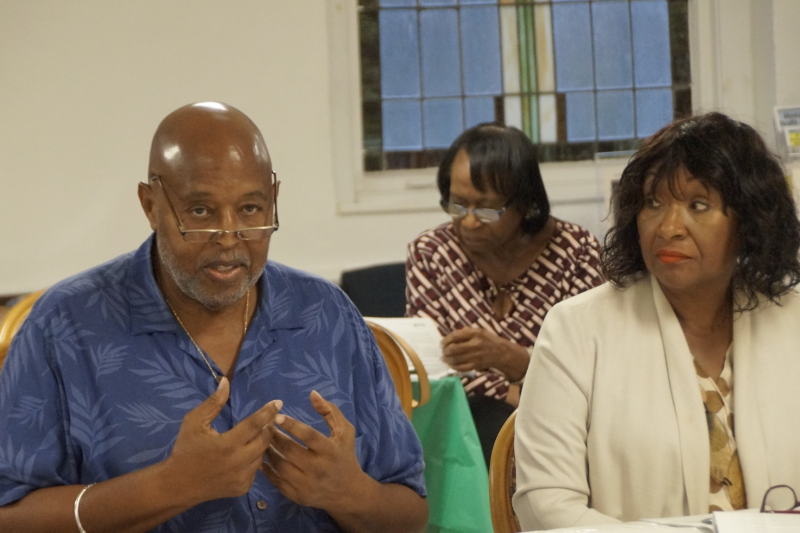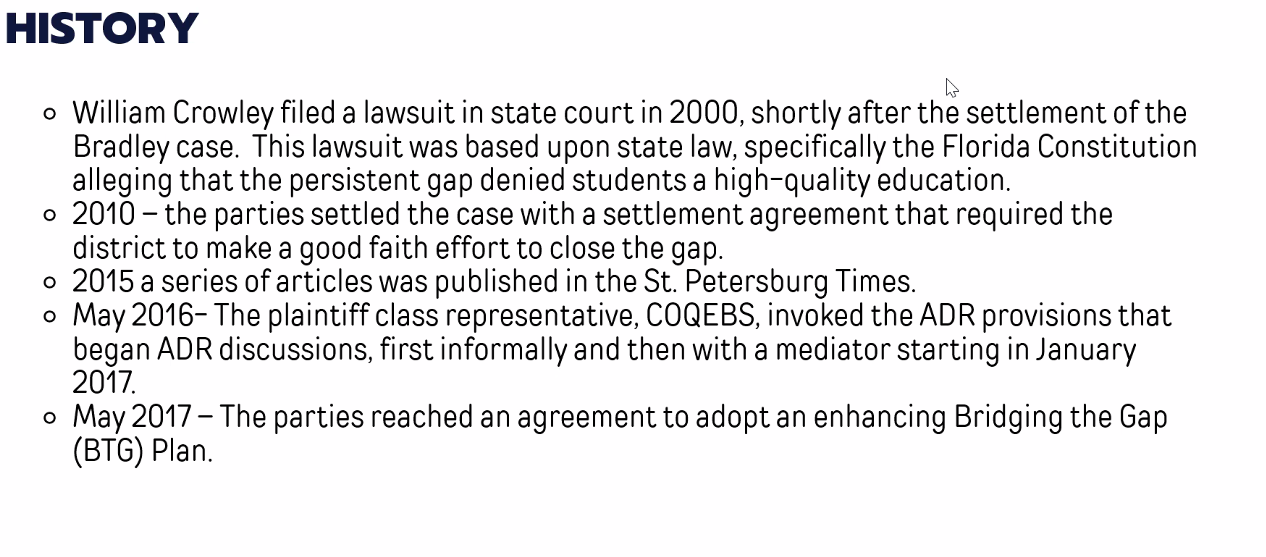COQEBS held its monthly meeting on Sept. 11 at Bethel African Methodist Episcopal Church to discuss the progress of the Bridging the Gap Plan.
GOLIATH J. DAVIS, III, Ph.D. | Contributor
PINELLAS COUNTY — In the first in-person Concerned Organization for Quality Education for Black Students (COQEBS) meeting since the end of the pandemic, COQEBS members and district personnel met to discuss the progress of the Bridging the Gap Plan, which was implemented to close the achievement gap between Black and white scholars. District members included:
- Superintendent Kevin Hendrick
- Deputy Superintendent Stephanie Woodford
- Chief Academic Officer Donnika Jones
- Transformation Zone Chief Lakisha Lawson
- Executive Director Rita Vasquez
- Minority Achievement Officer Kathleen Young-Parker
- Attorney David Koperski
Newly appointed Minority Achievement Officer Young-Parker provided a historical overview of the plan’s development and discussed the district’s performance towards accomplishing the stated goals. A question-and-answer session followed. The plan has been operational for approximately eight years, and all agree the progress is less than desirable.
Unknown to many in the room who were not district employees, scholars still receive Certificates of Completions (COCs) instead of standard high school diplomas. And, despite the fact COCs are not high school diplomas, Pinellas County allows recipients to participate in graduation exercises, leaving many in attendance to believe they are graduates. COCs are awarded to those who complete required credits but fail to meet all graduation requirements, including passing the required state assessments or earning a 2.0 grade point average.

The plan has been operational for approximately eight years, and all agree the progress is less than desirable. Pictured is Pinellas County Schools Superintendent Kevin Hendrick.
No one faults Superintendent Henrick for allowing the students to participate in graduation exercises. However, as of this writing, COQEBS has not received COC data. The belief is that the court order did not require it; however, Hendrick indicated the data is available, a matter of public record, and can be provided. Vasquez reported that she reviewed data for the 2021-22 school year, and the number of students receiving COCs is quite small. A request for the data over the last eight years was made and will be granted.
COQEBS members believe the data is essential for many reasons. One of the most important is that it further illuminates the problem we face as a community attempting to educate all of our children. The school district has a role to play, but so does the broader community. African-American parents, organizations and scholars share responsibility.
Dr. Oscar Barbarin, a research consultant working for COQEBS, informed the group of his intent to evaluate the Bridging the Gap Plan to discern what works and what doesn’t, and when possible, why. In addition to data analysis, he intends to utilize interviews with scholars, parents and school-based personnel. He reports his intent to provide the COQEBS Board with an update on a proposed timeline in two weeks.
Click here to review the Bridging the Gap Plan. Information on graduation codes can also be found at www.pcsb.org. I encourage everyone to familiarize themselves with both.
Dr. Goliath Davis is a former St. Petersburg police chief and deputy mayor who advocates for education in Pinellas County, focusing on Black student achievement.









